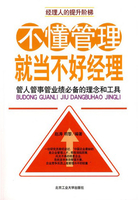Now it is certainly easy to see why raw technology dominates these events. It is adoptive;it is breathtaking;and it is penetrating every aspect of our lives. Today there are more PCs sold annually in the world than TVs or cars. The typical luxury automobile today has 20 to 30 microprocessors in it,more computing power by far than was inside the landing-craft that took the first astronauts to the moon. Last year there were five times more E-mail messages sent than the number of pieces of paper mail delivered worldwide,2.7 trillion E-mails. And I got more than my share. There is another way to look at what is going on. In the mid-1970s,the first super computers appeared. They were capable of about 100 million calculations per second. And they cost about one million dollars. Today the laptop computer that college students carry in their bags,packs,is twice as fast as that first super computer,and it costs less than 3,000 dollars. The trend in data storage is even more impressive. In the early 80s,the standard unit of computer storage,one mega-byte,or one million bytes of information,cost about 100 dollars. Today,it is 10 cents. In two years,it will cost 2 cents. These gains are driven by continuous advances in how we pack information into smaller and smaller spaces. If the US Library of Congress could shrink its collections of 17 million books by the same factor we just discussed,it could replace 800 kilometers of shelf space with less than 40 meters of space. These advances are going to continue and accelerate the rate microprocessors,storage,communications,memory,and all the other engines that are propelling this industry or continue to lead to the products of the faster,smaller,and less expensive,just as they have for 30 years. But as we stand here today,the opening of CeBIT,we are on the threshold of a very important change and the evolution of this industry. In many ways,this industry,a very emitory industry,is about to play out in its most important dimension. That is because the technology has become so powerful and so pervasive that its future impact on people and governments and all institutions will dwarf what has happened today.
各位晚上好!非常荣幸能够与汉诺威市市长、杨先生共同出席今晚的会议,非常荣幸能与科尔总理共同度过这个美好的夜晚。我一直在盼望着今晚的到来,因为很多年以前我就知道 CeBIT 对全球信息技术产业的重要性。因此在演讲之前我首先要对你们邀请我参加这个重要的会议表示衷心的感谢。
对于今晚要说的内容我想过很多。一方面,我是作为信息技术产业界的代表出席这次比其他任何技术展览会的规模都大的会议的。我们的工业是一个对很多事情都很拿手的工业,尤其善于庆祝其自己的创造发明。另一方面,和你们大多数人一样,我的绝大部分职业生涯也是作为这个产业的消费者度过的。因此,我知道一通承诺之后必将是黎明炫目的阳光。消费者常常被撇在一边,琢磨着发生了什么事,或是像我们一个非常重要的德国客户的首脑所说的那样,“你们的产业好像对结婚典礼非常在行,但对婚姻却不太懂。”
因此,虽然今晚我要谈谈信息技术的力量和潜力,但是我希望我能够像五年前刚到 IBM 时那样,站在消费者的立场上表达我的观点。
由纯技术主宰本次展览会的原因是很简单的,因为现在的纯技术是可以被接受的,是令人惊奇的,而且它已经渗透到了我们生活的各个方面。现在全世界每年销售的 PC 数量比电视机和汽车都要多。如今典型的豪华汽车中有 20 到 30 个微处理器,比那个把第一批宇航员送上月球的登月飞船的计算能力还强。去年全球发送的电子邮件数量比传统的纸邮件数量多5倍,达到 27,000 亿封。我的信箱容量就总是不够用。我们还可以从另外一个角度看看现在都发生了些什么事。七十年代中期出现了最初的超级计算机,计算能力是大约每秒一亿次,价格大约是一百万美元。而如今大学生的书包里装着的笔记本电脑的计算能力是那种超级计算机的两倍,价格却只有不到 3,000 美元。数据存储技术的发展趋势更是令人瞠目。
八十年代初期,一个标准单位的计算机存储能力,即 1MB,或者说 1 百万字节,售价是 100 美元,而现在却只要 10 美分,再过两年只要 2 美分就够了。这种结果是在技术不断进步的推动下产生的,我们可以把信息存储到越来越小的空间。如果把这种技术用到美国国会图书馆的 1,700 万册存书上,其书架长度将由 800 公里变成不到 40 米。这种进步将继续下去,并且会加速微处理器、存储设备、通信、内存以及所有其他正在推动信息产业前进的“发动机”式的产品的发展,或者会继续创造出更快、更小、更便宜的产品。过去 30 年的情况就是如此。然而当我们今天站在这里,出席 CeBIT 的开幕式的时候,我们面对的是一场业界非常重要的变化和革命。在很多方面,信息产业将成为最重要的产业。这是因为信息技术已经变得如此强大、如此普遍,以至于未来它对人们、政府和各个机构的影响将使目前发生的事相形见绌。
第一章 The Speech About Lenovo (3)
导读
2002年9月5日,IBM总裁杰斯特尼作为信息技术产业界的代表发表了演说。
单词注解
participate [pB:5tisipeit] v.参加,参与
remark [ri5mB:k] v.谈到;评论
dominate [5dCmineit] v.支配,统治,控制
storage [5stCridV] n.贮藏,保管
continuous [kEn5tinjuEs] adj.连续的,不断的
诵读名句
That is quite a statement in a industry that is good at many things,especially celebrating its own creations.
Now it is certainly easy to see why raw technology dominates these events.
These gains are driven by continuous advances in how we pack information into smaller and smaller spaces.
第一章 The Superinvestors of Graham-and-Doddsville
格雷厄姆—多德的超级投资者们
Warren Buffett/沃伦·巴菲特
Is the Graham and Dodd“look for values with a significant margin of safety relative to prices”approach to security analysis out of date? Many of the professors who write textbooks today say yes. They argue that the stock market is efficient;that is,that stock prices reflect everything that is known about a company’s prospects and about the state of the economy. There are no undervalued stocks,these theorists argue,because there are smart security analysts who utilize all available information to ensure unfailingly appropriate prices. Investors who seem to beat the market year after year are just lucky.“If prices fully reflect available information,this sort of investment adeptness is ruled out,”writes one of today’s textbook authors.
Well,maybe. But I want to present to you a group of investors who have,year in and year out,beaten the Standard & Poor’s 500 stock index. The hypothesis that they do this by pure chance is at least worth examining. Crucial to this examination is the fact that these winners were all well-known to me and pre-identified as superior investors,the most recent identification occurring over fifteen years ago. Absent this condition—that is,if I had just recently searched among thousands of records to select a few names for you this morning—I would advise you to stop reading right here. I should add that all of these records have been audited. And I should further add that I have known many of those who have invested with these managers,and the checks received by those participants over the years have matched the stated records.















